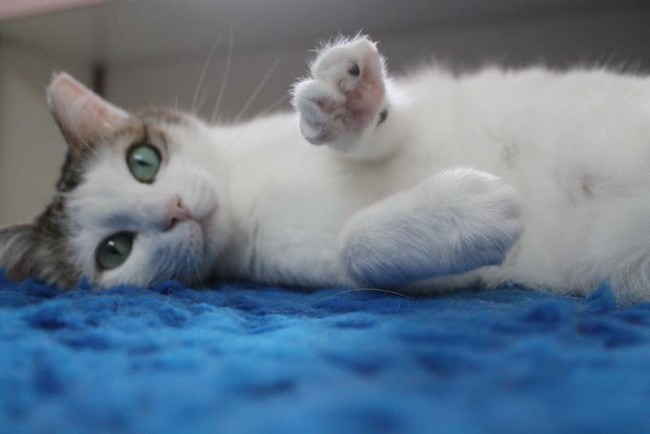and Dubai International Airport
and Dubai International Airport

Sometimes referred to as Feline AIDS, FIV is a viral infection that is transmitted cat to cat, usually from a bite wound. The virus is known as a lentivirus, or slow virus (are you now recalling your school Latin lessons?) and because of this, it can go undetected for many years until symptoms begin to appear. Much like the Human Immunodeficiency Virus (HIV), infected cats will manifest symptoms when their natural immune system is compromised sufficiently by the virus such that they become too weak to fend off an infection that might not otherwise trouble a healthy cat.
Given the possible delay in the appearance of any symptoms of the disease, you very well could have a FIV-infected cat and not be aware of it. Some of the possible signs that your cat could be infected include (in order from most common to least common):
The above list of symptoms seems to include universal indicators that something could be going on with him, so it’s always a good idea to consult your vet when you have any suspicions that something is amiss with your cat. To confirm the presence of the virus, your vet will do a blood test that looks for the presence of antibodies to the virus in the blood. As no test is 100% accurate all of the time, your vet may decide, after interpreting the test result, that further testing is needed to confirm either a positive or a negative test result.
The good news is that cats infected with the virus can live a relatively normal life, but for just how long that is no one can say with any certainty. Now, because keeping your immuno-compromised cat living inside of a bubble is near to impossible, what you can do to offer him protection is make him a strictly indoor cat. It truly is the best way to minimize his risk of exposure to infections. Not to mention that it will keep him safe from getting into a tussle with other cats that may bite him and cause an infection, which your puddy-tat could possibly not overcome. One additional effort you can make to keep your FIV-positive cat as healthy as possible is perhaps making a change in his diet. Check out our blog article about the best food for your cat: https://www.dkc.ae/post/85/the-best-food-for-your-cat
And, if you find that you do have one cat free of FIV and the other is indeed FIV-positive, you’ll need to assess the situation, as transmission from infected cat to healthy cat can occur (but know that FIV is not a zoonotic disease, which means it cannot be transmitted to humans!).
Office Coordinators -cum- Receptionists
Animal Relocations Officers

